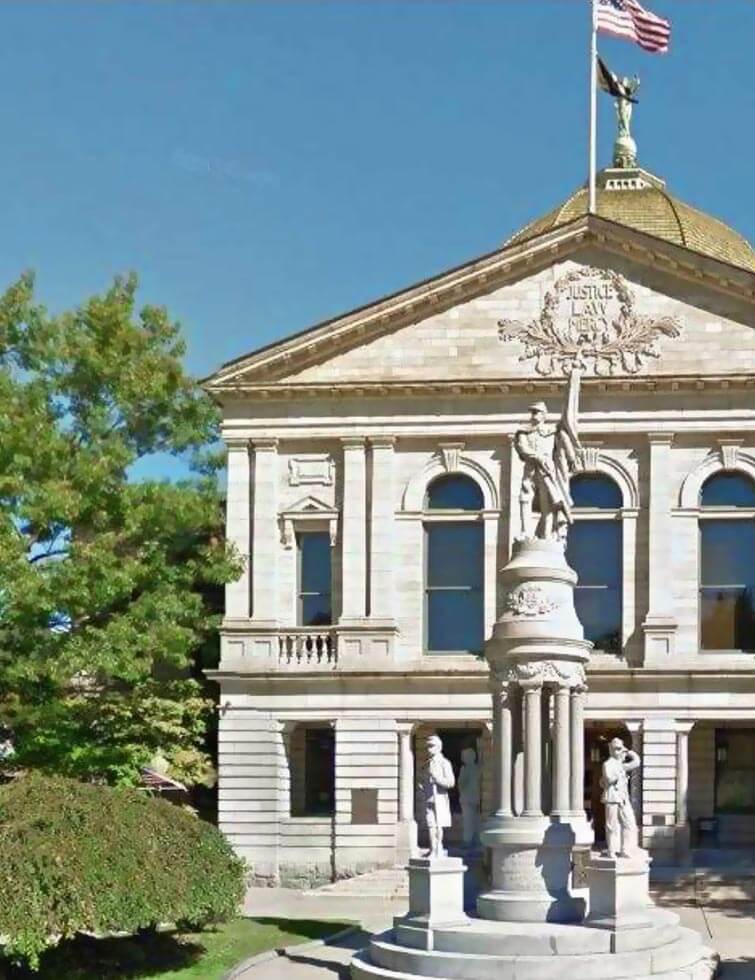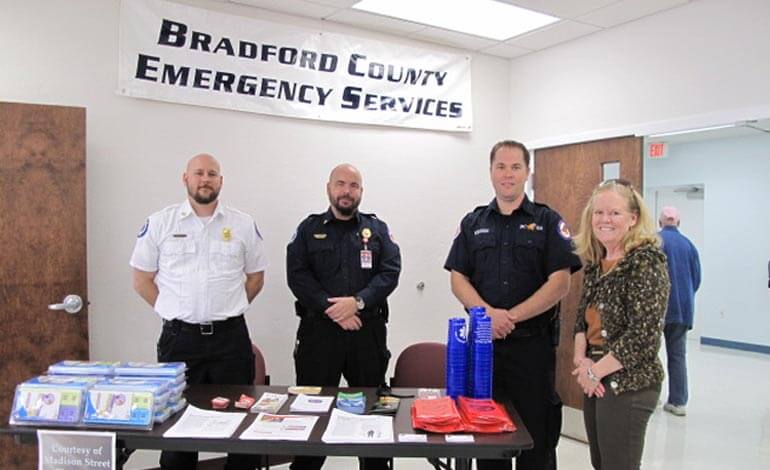About Bradford County Government
The main governing and representative body of the Bradford County government is its three-member board of county commissioners. The county commissioners work in conjunction with other elected officials, who are generally referred to as “row offices.” These offices include the Sheriff, District Attorney, Prothonotary/ Clerk of Courts, Register of Wills/Recorder of Deeds. Additionally, three auditors and a treasurer are elected as county finance officers. The county commissioners, the elected officers and the county court appoint a number of county officials and employees needed to carry out the functions of the Bradford County government.
The elected county officers are enumerated in the Pennsylvania Constitution. The powers and duties of each elected official are prescribed by statutes located throughout the county code and state law.
County government supports the county court and records and administers activities relating to civil and criminal justice, including prisons, probation and parole.
County government assesses property for local taxation, registers voters, conducts elections and is responsible for important human services, including county nursing homes, child welfare services and services for the aging, mental health and mental retardation programs. County planning commissions perform vital services for the counties and their municipalities in community development and planning.
Counties levy taxes on people and property within their jurisdictions. The tax on real estate, or property tax, is the main source of local revenue from which the county runs its operations. In each county, a board is established to supervise, equalize and revise assessments and to hear appeals.



